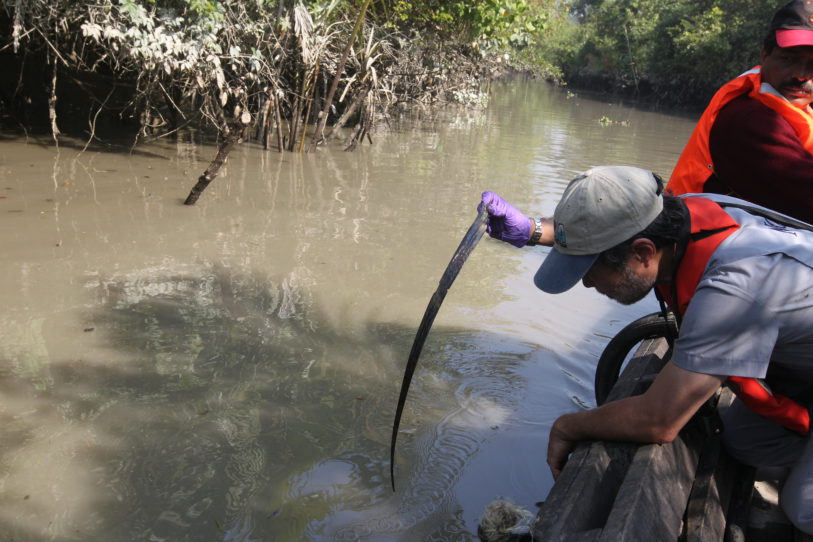This joint UN/ Government of Bangladesh mission report outlines the findings of an assessment following an oil tanker accident in the Sundarbans of Bangladesh.
Government of Bangladesh mission report outlines the findings of an assessment following an oil tanker accident in the Sundarbans of Bangladesh.
On 9 December 2014, an oil tanker accident in the Sundarbans of Bangladesh led to the release of approximately 350,000 litres of heavy fuel oil into the river and mangrove ecosystem, which is listed as a UNESCO World Heritage and a Ramsar site. After the initial response and clean-up, the Government of Bangladesh requested technical assistance to support the response to and the containment of the oil spill, and to assess the potential impacts to the environment and to communities. The Joint UN/Government mission consisted of 25 experts and officials from Bangladesh Government agencies and universities, the United Nations Disaster Assessment and Coordination (UNDAC) team, UNDP, USAID, the European Union Civil Protection Mechanism, France and the Wildlife Conservation Society; and was led by an UNDAC Team Leader (OCHA EPES). This team composition provided an excellent knowledge-sharing opportunity to strengthen national oil spill preparedness and response capacity. The short-term environmental impacts of the oil spill seemed to be limited, but further monitoring has been recommended. Furthermore, the oil spill incident presented a serious wake-up call, and the response team discouraged traffic through the unique and biodiverse Sundarbans from an environmental perspective.
The findings of the mission were presented to the Ministry of Environment and Forests and the media on 31 December 2014, becoming front-page news in all major national newspapers. The Government of Bangladesh is keen to take the recommendations forward, and is developing an action plan with UNDP support, based on the recommendations from the mission. UNDP is supporting the oil waste disposal with support from the UK Department for International Development (DFID) and International Tanker Owners Pollution Federation Ltd (ITOPF).
Consult the report here.